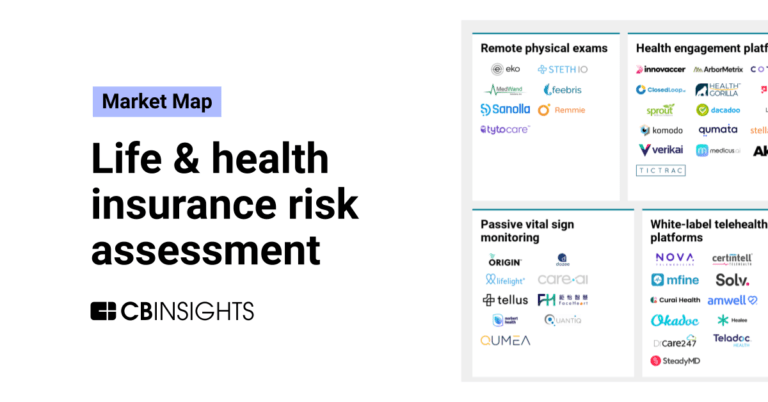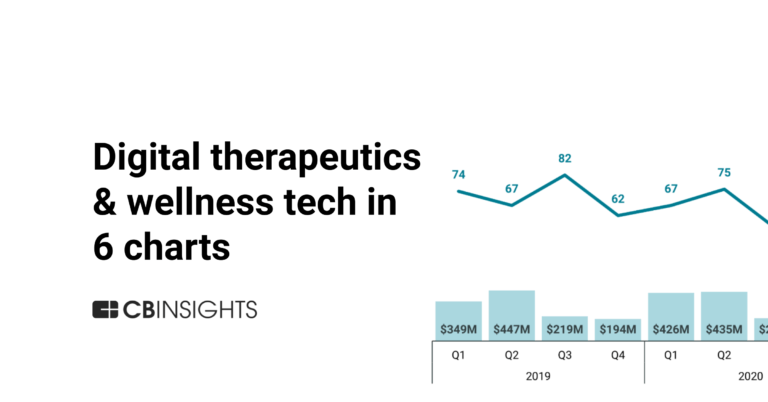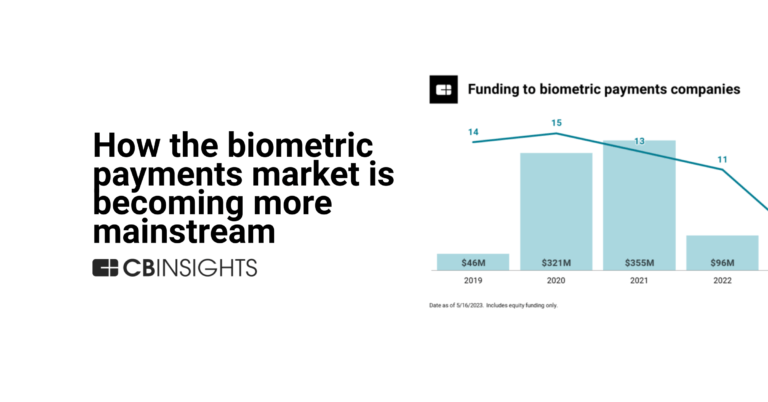
Oura
Founded Year
2013Stage
Series E | AliveTotal Raised
$1.595BValuation
$0000Last Raised
$900M | 1 mo agoRevenue
$0000Mosaic Score The Mosaic Score is an algorithm that measures the overall financial health and market potential of private companies.
+108 points in the past 30 days
About Oura
Oura focuses on health tracking wearables in the wellness technology sector. Its main offering is the Oura Ring, a smart ring that collects biometric data to provide insights into sleep, fitness, and stress. It was founded in 2013 and is based in Oulu, Finland.
Loading...
Oura's Product Videos
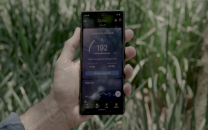
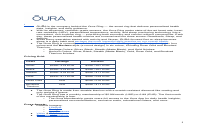
ESPs containing Oura
The ESP matrix leverages data and analyst insight to identify and rank leading companies in a given technology landscape.
The fitness tracking apps market offers consumers a variety of solutions to track and monitor their physical activity, nutrition, and overall health. These apps use sensors on smartphones to collect data on steps taken, calories burned, heart rate, sleep patterns, and more. Companies in this market may also have a wearable, coaching platform, or exercise content. The data is then analyzed and pres…
Oura named as Challenger among 12 other companies, including Samsung, Google, and Nike.
Loading...
Research containing Oura
Get data-driven expert analysis from the CB Insights Intelligence Unit.
CB Insights Intelligence Analysts have mentioned Oura in 8 CB Insights research briefs, most recently on Aug 4, 2025.
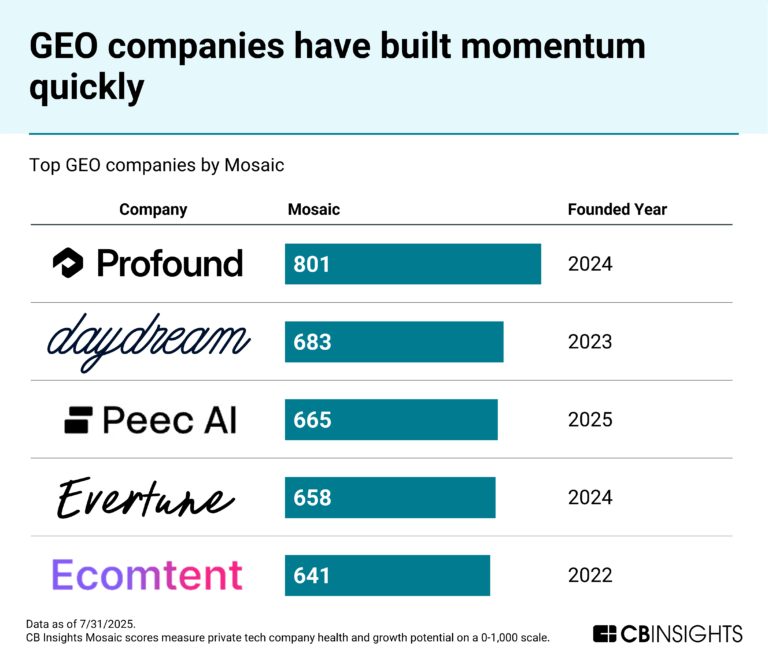
Aug 4, 2025
3 markets fueling the shift to agentic commerce
Aug 21, 2024
The clinical trials tech market map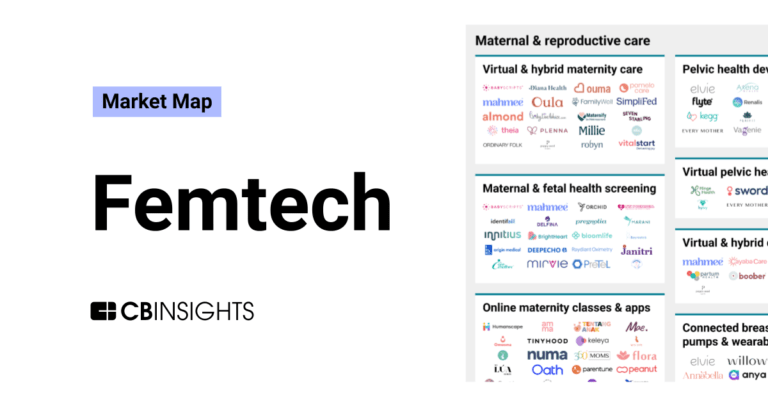
Mar 28, 2024
The femtech market map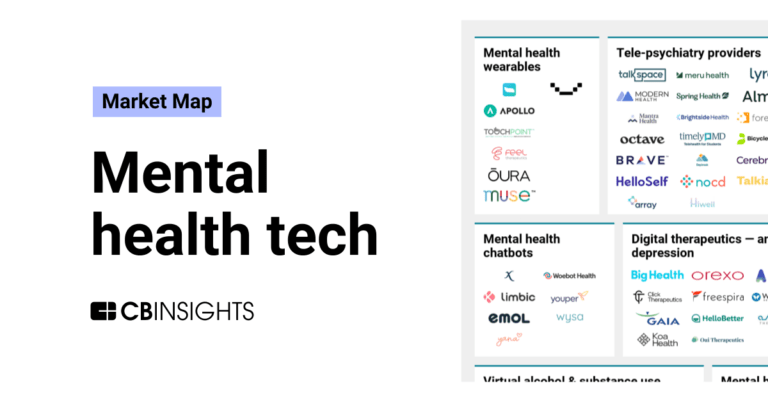
Sep 13, 2023
The mental health tech market mapExpert Collections containing Oura
Expert Collections are analyst-curated lists that highlight the companies you need to know in the most important technology spaces.
Oura is included in 10 Expert Collections, including Direct-To-Consumer Brands (Non-Food).
Direct-To-Consumer Brands (Non-Food)
1,192 items
Startups selling their own branded products directly to consumers through owned e-commerce channels, rather than relying on department stores or big online marketplaces.
Unicorns- Billion Dollar Startups
1,309 items
Luxury Tech
419 items
Tech-enabled companies launching new luxury brands, as well as startups providing tech solutions to the luxury industry, including e-commerce tools, marketing, and more. While these companies may not exclusively target luxury companies, they have notable luxury partners.
Wellness Tech
1,370 items
We define wellness tech as companies developing technology to help consumers improve their physical, mental, and social well-being. Companies in this collection play across a wide range of categories, including food and beverage, fitness, personal care, and corporate wellness.
Digital Health 50
300 items
The most promising digital health startups transforming the healthcare industry
Smart Home & Consumer Electronics
1,234 items
This Collection includes companies developing smart home devices, wearables, home electronics, and other consumer electronics.
Oura Patents
Oura has filed 197 patents.
The 3 most popular patent topics include:
- wearable devices
- wearable computers
- smartwatches

Application Date | Grant Date | Title | Related Topics | Status |
|---|---|---|---|---|
6/24/2021 | 4/8/2025 | Wearable devices, Classification algorithms, Units of length, Statistical classification, Wearable computers | Grant |
Application Date | 6/24/2021 |
|---|---|
Grant Date | 4/8/2025 |
Title | |
Related Topics | Wearable devices, Classification algorithms, Units of length, Statistical classification, Wearable computers |
Status | Grant |
Latest Oura News
Nov 17, 2025
Geeky Gadgets 11:15 am Imagine waking up each morning with a detailed snapshot of your health, your sleep quality, heart rate, and even your readiness for the day, all delivered by a sleek, barely-there device on your finger. Welcome to the world of smart rings, where innovative health tracking meets minimalist design. With options like the Oura Ring 4, Ringconn Gen 2, and Ultrahuman Ring Air, these tiny wearables are redefining how we monitor our well-being. But with so many choices, each boasting unique strengths, how do you decide which one deserves a spot on your finger? Whether you’re drawn to premium features, budget-friendly practicality, or feather-light comfort, the right smart ring can transform how you understand and optimize your health. In this in-depth comparison by Tech Fowler, learn more about what sets these three standout models apart. From advanced sleep tracking to battery life that keeps up with your lifestyle, each ring offers something different. You’ll discover which ring excels in durability, which one is perfect for all-day comfort, and which might surprise you with its unique health insights. Whether you’re a data-driven fitness enthusiast or simply looking for a stylish way to stay on top of your health, this guide will help you weigh the pros and cons of each option. By the end, you’ll have a clearer sense of which smart ring aligns with your priorities, and why this tiny piece of tech might just become your most valuable accessory. Smart Ring Comparison Guide TL;DR Key Takeaways : Smart rings like the Oura Ring 4 , Ringconn Gen 2 , and Ultrahuman Ring Air offer compact, stylish alternatives to smartwatches, with distinct features catering to different user needs. Pricing varies significantly: Oura Ring 4 is the most expensive with a subscription requirement, Ringconn Gen 2 is the most affordable, and Ultrahuman Ring Air is competitively priced but limited in availability. Design and comfort differ: Oura Ring 4 is premium but bulky, Ringconn Gen 2 is lightweight with a natural fit, and Ultrahuman Ring Air is the lightest and most minimalistic option. Health tracking capabilities include exceptional sleep tracking across all models, with Ringconn Gen 2 offering unique sleep apnea detection and Ultrahuman Ring Air adding skin temperature and heart rate monitoring. Battery life varies: Ringconn Gen 2 lasts the longest (8–9 days), followed by Oura Ring 4 (6–7 days), while Ultrahuman Ring Air has the shortest battery life (4–5 days) with potential degradation over time. Pricing and Availability Cost is often a critical factor when choosing a smart ring, and each of these models offers a different pricing structure to suit various budgets. Here’s how they compare: Oura Ring 4: Starting at $349, this model can cost up to $499 depending on the finish. However, full functionality requires a subscription of $5.99 per month or $69.99 annually, which adds to the overall expense. Ringconn Gen 2: The most budget-friendly option, with a starting price of $299. A lighter version, the Gen 2 Air, is available for $199, making it an excellent choice for cost-conscious buyers. Ultrahuman Ring Air: Priced at $349, this ring offers competitive features but is currently unavailable in the U.S., limiting its accessibility for some users. The subscription requirement for the Oura Ring 4 may deter some users, while the affordability of the Ringconn Gen 2 makes it an appealing alternative. The Ultrahuman Ring Air, though competitively priced, faces challenges with availability in certain regions. Design and Comfort The design and comfort of a smart ring are crucial, as these devices are intended for continuous wear. Each model offers unique design elements to cater to different preferences: Oura Ring 4: The heaviest and thickest of the three, this ring is designed with premium materials and customizable finishes, offering a stylish and luxurious appearance. However, its bulkier design may not suit users seeking a more subtle option. Ringconn Gen 2: Featuring a rounded-square shape, this ring is the thinnest option, providing a more natural fit on the finger. Its lightweight design enhances comfort for extended wear. Ultrahuman Ring Air: The lightest and most minimalistic design, this ring prioritizes comfort, making it an excellent choice for users who value a barely-there feel during daily use. While the Oura Ring 4 excels in aesthetics, the Ringconn Gen 2 and Ultrahuman Ring Air focus on lightweight designs that enhance comfort, particularly for users who plan to wear their smart ring throughout the day and night. Oura Ring 4 vs Ringconn Gen 2 vs Ultrahuman Ring Air Durability and Build Quality Durability is a key consideration for any wearable device, as daily use exposes smart rings to potential wear and tear. All three models are constructed with high-quality materials to ensure longevity: Oura Ring 4: Available in titanium and other premium finishes, this ring offers excellent durability but is prone to scratches, especially in glossy variants. Ringconn Gen 2: Built with robust materials, this ring balances durability with a lightweight design, making it suitable for active users. Ultrahuman Ring Air: Designed with a focus on minimalism, this ring uses durable materials but may show signs of wear over time, particularly in high-friction environments. For users seeking a balance between durability and aesthetics, models with titanium or ceramic finishes are recommended, as they provide enhanced resistance to scratches and other forms of damage. Health Tracking Features The primary appeal of smart rings lies in their health tracking capabilities. Each model offers a range of features tailored to different aspects of health monitoring: Oura Ring 4: Renowned for its exceptional sleep tracking accuracy, particularly in detecting deep sleep phases. It also provides insights into readiness and activity levels, making it a comprehensive health tool. Ringconn Gen 2: Stands out with its unique sleep apnea detection feature, offering a level of health monitoring not available in the other models. This makes it an excellent choice for users with specific health concerns. Ultrahuman Ring Air: Combines sleep tracking accuracy comparable to the Oura Ring 4 with additional features such as skin temperature sensing and heart rate monitoring, providing a holistic view of the user’s health. While all three rings excel in sleep tracking, the Ringconn Gen 2’s sleep apnea detection and the Ultrahuman Ring Air’s additional sensors set them apart for users with specialized health tracking needs. App Integration and User Experience A well-designed app can significantly enhance the functionality of a smart ring, providing users with actionable insights and a seamless experience: Oura Ring 4: Offers the most visually appealing and user-friendly app, with detailed insights and personalized recommendations that make it easy to interpret health data. Ringconn Gen 2: Features a functional app that delivers essential data but lacks the polish and engagement of the Oura app, which may affect user satisfaction. Ultrahuman Ring Air: Includes additional integrations, such as home environment tracking, providing a more comprehensive health monitoring experience for users seeking advanced features. The Oura Ring 4 leads in app design and usability, while the Ultrahuman Ring Air’s expanded integrations make it a compelling choice for users seeking a broader range of health insights. Battery Life and Charging Battery life is a critical factor for any wearable device, as frequent charging can disrupt the user experience. Here’s how the three rings compare: Ringconn Gen 2: Offers the longest battery life, lasting 8–9 days on a single charge, making it ideal for users who prefer minimal maintenance. Oura Ring 4: Provides a respectable 6–7 days of battery life, balancing performance with convenience. Ultrahuman Ring Air: Falls behind with 4–5 days of battery life, and some users have reported noticeable degradation over time, which may impact long-term usability. All three rings use wireless charging with puck-shaped chargers, which are convenient but feature bright LED indicators that can be disruptive at night. Users may need to consider placement to avoid disturbances during sleep. Activity Tracking and Limitations While smart rings excel in sleep tracking, their compact design limits their effectiveness in activity tracking compared to smartwatches. Metrics such as step counting and heart rate monitoring during workouts are less accurate, but their lightweight and comfortable design make them ideal for overnight wear. For users focused on sleep and recovery data, smart rings outperform smartwatches in terms of precision and usability. Choosing the Right Smart Ring Selecting the right smart ring depends on your priorities and lifestyle. Here’s a quick guide to help you decide: Oura Ring 4: Best for users seeking premium features, excellent sleep tracking, and an intuitive app experience. However, the subscription cost may be a drawback for some. Ringconn Gen 2: Ideal for budget-conscious buyers, offering outstanding battery life and the unique addition of sleep apnea detection, making it a practical and affordable choice. Ultrahuman Ring Air: Perfect for those prioritizing comfort and minimal design, though its limited availability in the U.S. may pose a challenge for interested buyers. Smart rings offer a discreet and comfortable way to monitor health, making them a valuable tool for users focused on sleep and recovery. By understanding the features and limitations of each model, you can choose the smart ring that best aligns with your needs and preferences.
Oura Frequently Asked Questions (FAQ)
When was Oura founded?
Oura was founded in 2013.
Where is Oura's headquarters?
Oura's headquarters is located at Elektroniikkatie 10, Oulu.
What is Oura's latest funding round?
Oura's latest funding round is Series E.
How much did Oura raise?
Oura raised a total of $1.595B.
Who are the investors of Oura?
Investors of Oura include Fidelity Investments, Whale Rock, Atreides Management, ICONIQ Capital, Wells Fargo and 64 more.
Who are Oura's competitors?
Competitors of Oura include Whoop, Eli Health, Dozee, Circadian, NYX Technologies and 7 more.
Loading...
Compare Oura to Competitors

Whoop produces wearable health technology within the fitness and health sectors. It offers a fitness tracker that monitors sleep, heart rate variability, resting heart rate, and physical strain. Whoop was formerly known as Bobo Analytics. It was founded in 2012 and is based in Boston, Massachusetts.

Withings focuses on connected health technology in the consumer electronics industry. The company provides devices such as scales, hybrid watches, blood pressure monitors, and sleep analyzers that offer health measurements and information. Withings serves consumers who are interested in personal health monitoring and management. It was founded in 2008 and is based in Issy-les-Moulineaux, France.

NYX Technologies serves as a neurotechnology company that focuses on sleep and wellness. The company offers a wearable headset designed for sleep quality using adaptive and science-backed methods. It primarily serves the health and wellness technology sector. It was founded in 2016 and is based in Haifa, Israel.

Dozee offers contactless remote patient monitoring within the healthcare sector, utilizing Artificial Intelligence (AI) and ballistocardiography technology. It offers monitoring of vital signs such as heart rate, respiratory rate, blood pressure, blood oxygen saturation, and skin temperature, as well as sleep quality assessment. It provides healthcare professionals with alerts and health insights. It was founded in 2015 and is based in Bangalore, India.

Empatica is a company involved in medical devices and AI for remote patient monitoring within the healthcare industry. The company provides wearable technology and a health monitoring platform that collects and analyzes health data for clinical research and patient care. Empatica serves the healthcare sector, including pharmaceutical companies and clinical researchers. Empatica was formerly known as Physiio International. It was founded in 2011 and is based in Cambridge, Massachusetts.

Muse focuses on neurotechnology in the health sector. Its product is a smart headband that acts as a personal meditation and sleep coach, using advanced sensors to detect brain activity, heart rate, breath, and body movement, and providing real-time audio feedback to guide the user's meditation or sleep. Muse primarily sells to individuals seeking to improve their mental well-being and sleep quality. It was founded in 2009 and is based in Toronto, Canada.
Loading...

